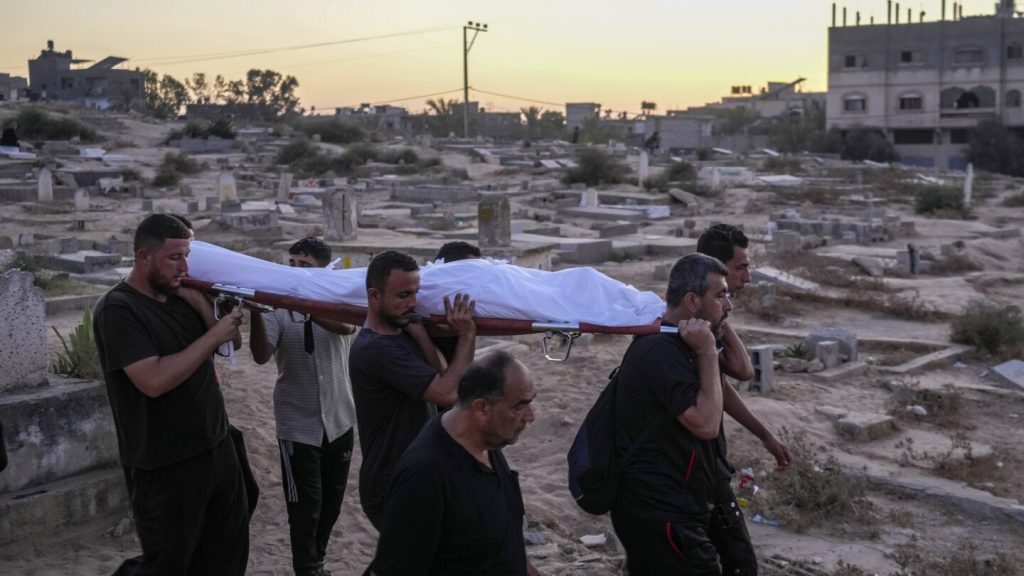In the Gaza Strip, a small, densely populated area, the death toll has reached over 40,000 since the start of the 10-month Israel-Hamas war. The Deir al-Balah cemetery, which is 70 years old, is struggling to accommodate the increasing number of dead bodies. The grim task of digging graves falls on volunteers like Sa’di Baraka, who work from sunrise onwards to make space for the deceased. Many of the bodies come from areas where burial grounds have been destroyed or are inaccessible, leading to overcrowding in the cemetery.
The ongoing conflict between Israel and Hamas has resulted in a staggering number of casualties in Gaza, with nearly 2% of the prewar population being killed. The true toll could be even higher, as many bodies remain under rubble that is difficult to access. The author Yousri Alghoul describes Gaza as becoming “one large cemetery,” where the living feel like they are just waiting for their turn to die. The violence between the two sides has claimed the lives of both civilians and militants, with each blaming the other for the civilian casualties.
Israel’s military actions in Gaza have not only displaced Palestinians in life but also in death. Troops have destroyed, plowed over, and bombed more than 20 cemeteries, leading to the relocation of bodies and mass graves. Families have had to quickly bury their loved ones in fear that their graves would be destroyed by Israeli forces. The traumatic experience of seeing the bodies of their relatives scattered on the ground has left many Palestinians devastated and unsure of how to properly honor their dead.
In peacetime, Gaza funerals were a communal affair where the deceased would be honored according to Islamic traditions. However, the ongoing conflict has disrupted these rituals, leaving families to bury their dead quickly and without proper ceremony. Without enough gravediggers available, survivors like Hassan Fares have had to bury their loved ones themselves, whispering prayers over the distant sounds of warplanes. The lack of resources and the constant threat of violence have made it challenging for Palestinians to grieve and honor their dead in a dignified manner.
The uncertainty surrounding the fate of missing relatives’ bodies has added to the trauma experienced by many families. Mousa Jomaa, an orthopedist in the West Bank, has lost 21 relatives in the Gaza conflict, including children and medical workers. The destruction caused by Israeli airstrikes has made it difficult for families to locate and bury their loved ones properly. The sight of smashed graves and inaccessible cemeteries has left many Palestinians feeling helpless and desperate to find closure for their lost family members.
The destruction of cemeteries in Gaza by Israeli forces has left many families unable to visit the graves of their loved ones. Satellite imagery has revealed the extent of the damage, with some of the largest cemeteries in Gaza being rendered off-limits. Families like Mahmoud Alkrunz’s have discovered that the graves of their relatives have been unearthed and damaged by military operations. The lack of respect for the dead and the desecration of burial sites has added to the pain and suffering experienced by Palestinian families in the midst of the ongoing conflict.


